I know its taken a while but I’m finally going to show you how I do my acrylic pours. (This is a photo heavy post)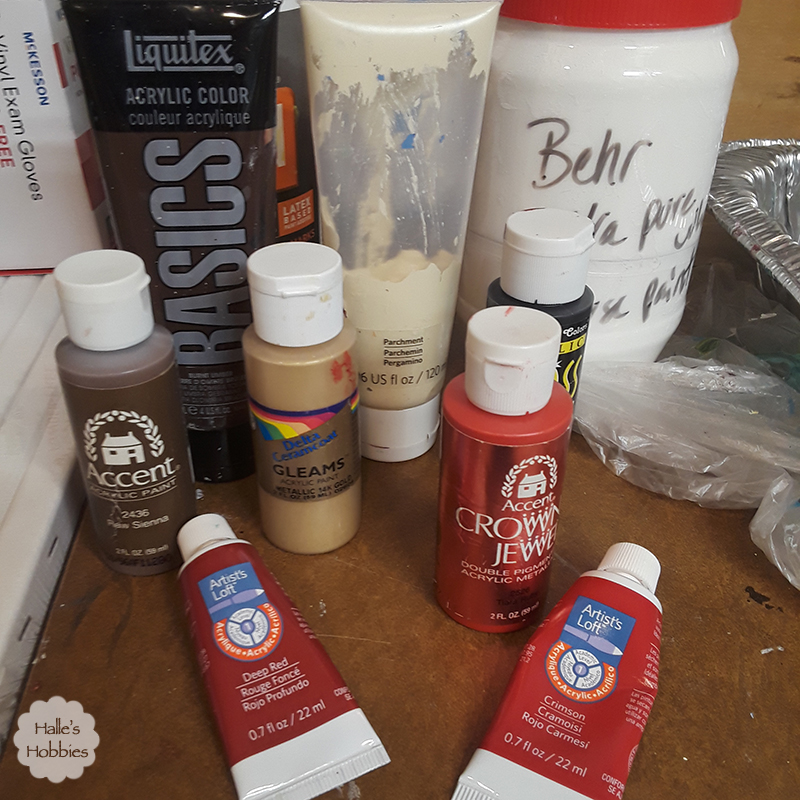
Lets talk about the colors I used first off. I use all brands of paint, even house paint for my pours. I really only care about the color I achieve in each cup. I mixed the 2 browns until the color felt right. I did the same with the 2 reds in the right of the photo.
In all I have 7 colors. As I’m mixing these I add a product called Floetrol, which is a paint conditioner. I plan to use some of this in my paint for the front door…hopefully eliminating my brush strokes.
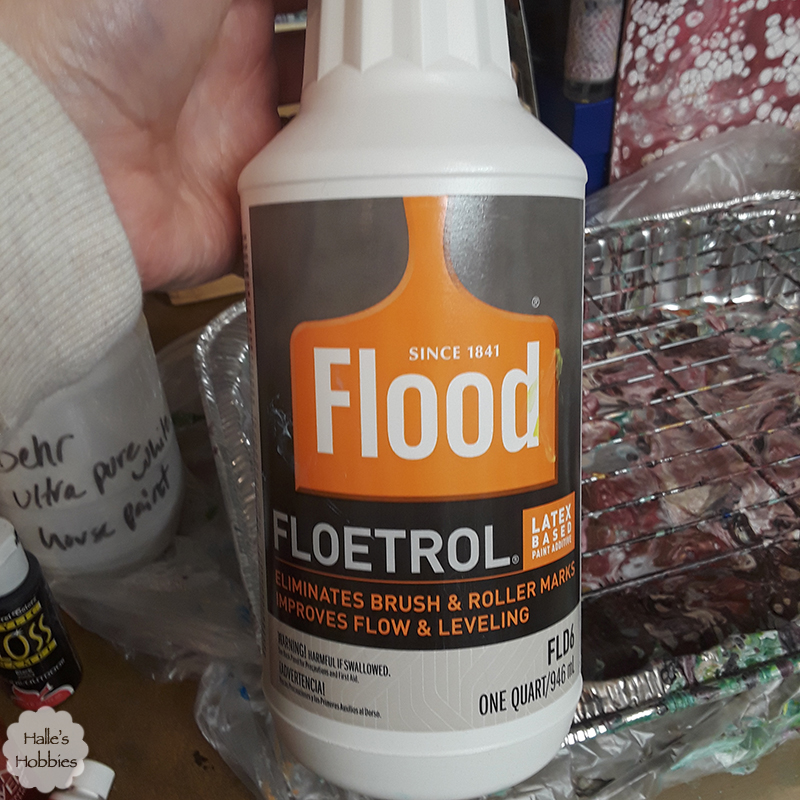 I use about a 50/50 mix of paint and Floetrol. I eyeball it…this girl doesn’t measure. If the paint is still quite thick (which is almost always is) I add distilled water very slowly until I get the proper consistency. For me that is the paint running in a thin line from my stir stick.
I use about a 50/50 mix of paint and Floetrol. I eyeball it…this girl doesn’t measure. If the paint is still quite thick (which is almost always is) I add distilled water very slowly until I get the proper consistency. For me that is the paint running in a thin line from my stir stick. 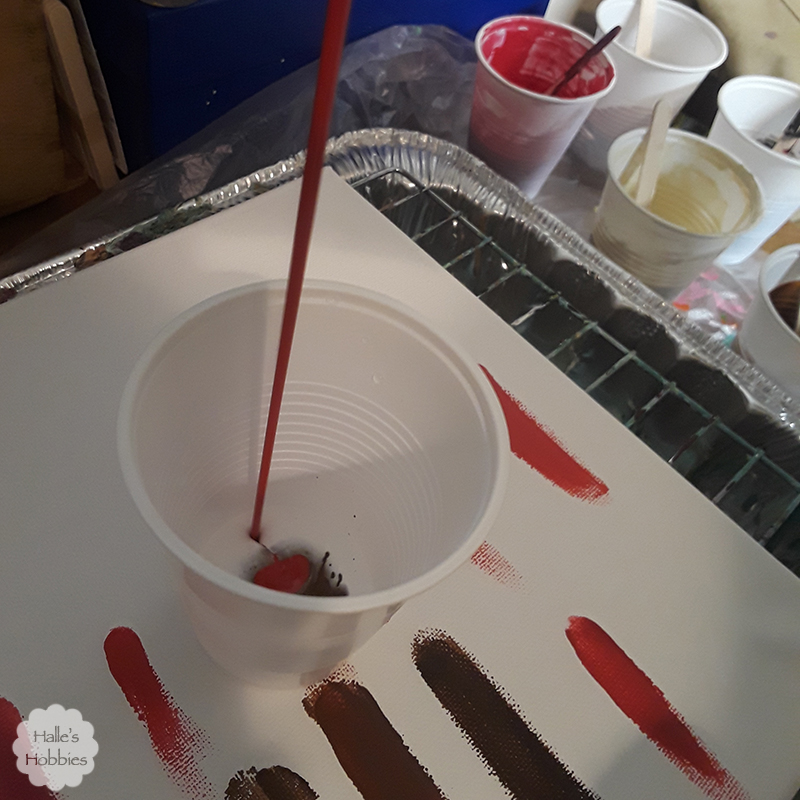
Now comes the dirty pour part. I always start with a small amount of white in the bottom of the cup then begin adding streams of color in a varied order. I pour from different heights which distributes the color in the cup in different ways.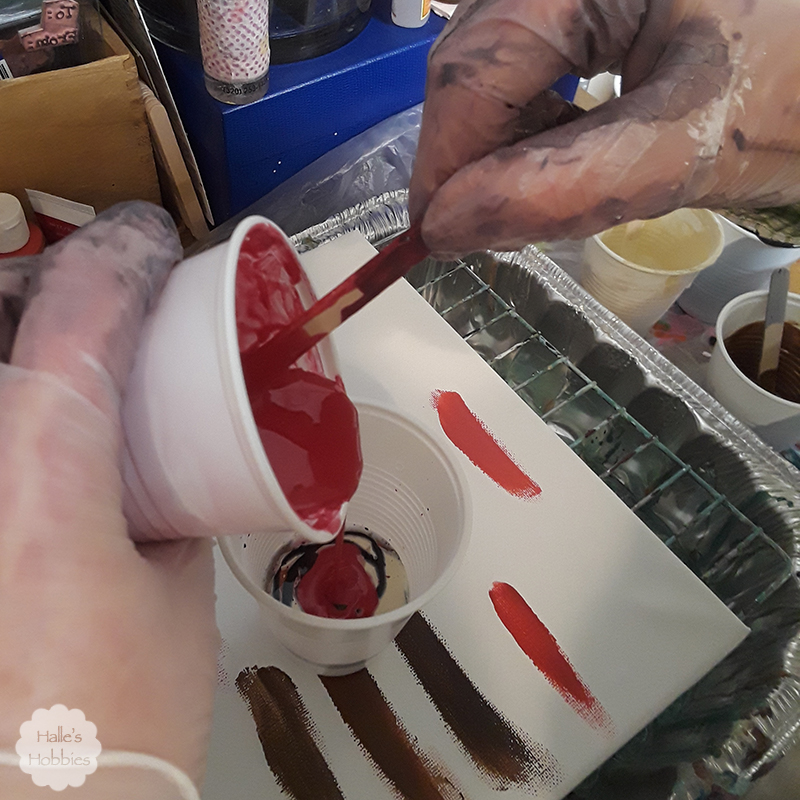
As you can see I tried out colors from my paint drawer on the canvas before preparing my cups. It doesn’t matter what is on the canvas before so feel free to reuse an old canvas. After filling the cup with enough paint or what I assume is enough…remembering that some paint will be poured off the edge in this process….I’m ready to pour or flip as the case may be.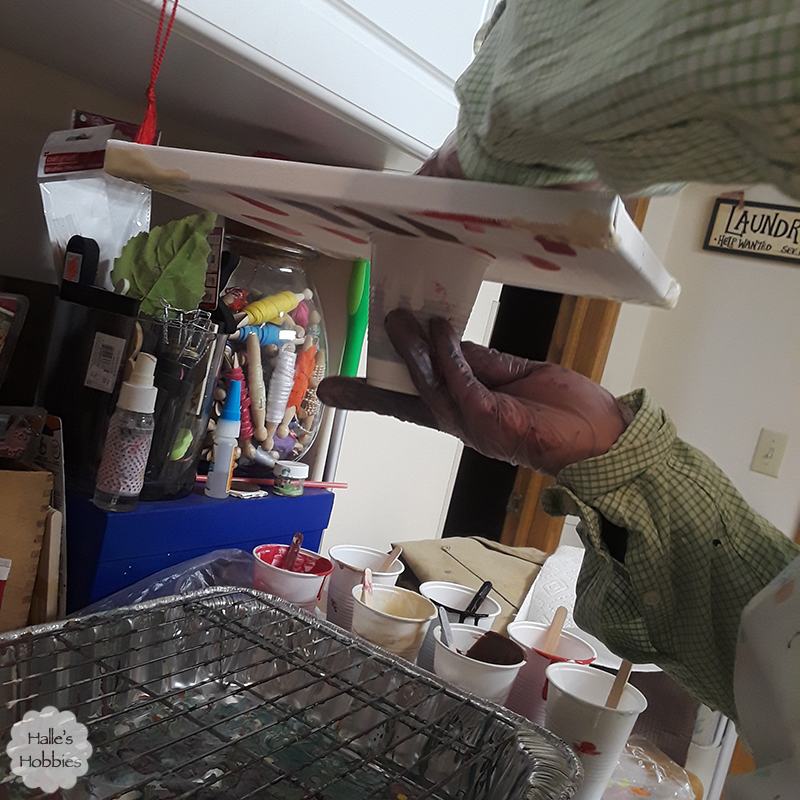
Some people quickly flip the cup over onto the canvas…I have yet to be brave enough to do that since I am working in such a small space. Instead I flip with canvas over.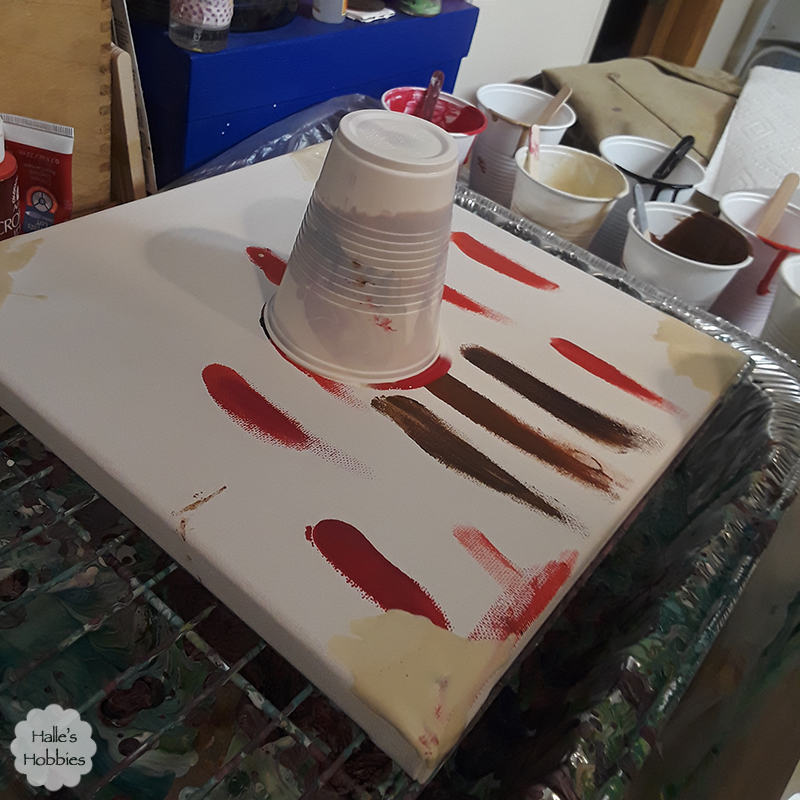
And now we wait a minute or so for the paint to settle. Not sure how necessary this is but its the way I do it. I also tend to put a little paint at the corners to get the pour to flow over the edge quicker.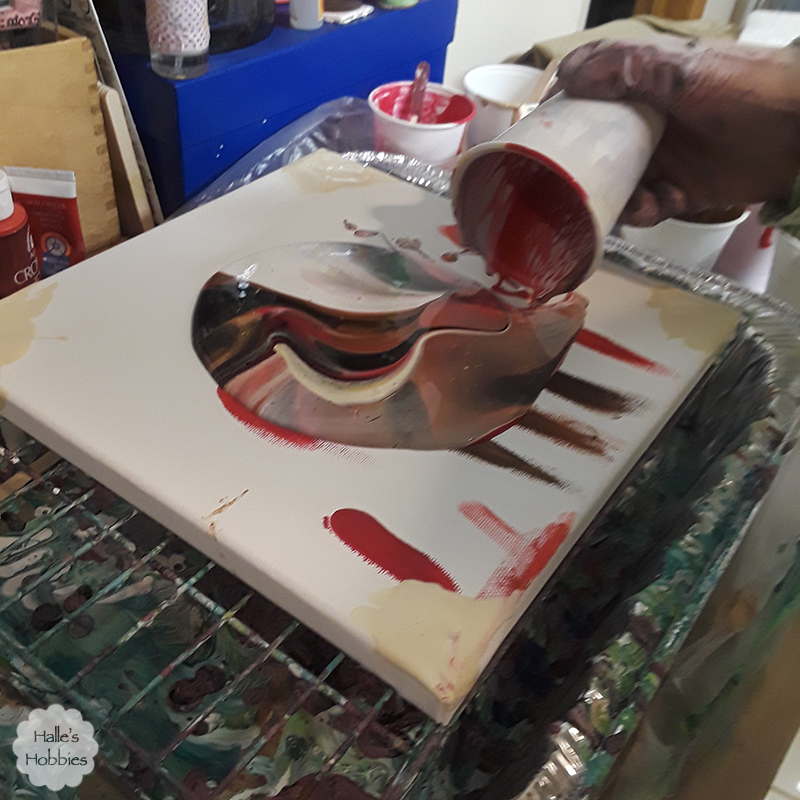
Every time I’m amazed by the designs that come straight from the cup.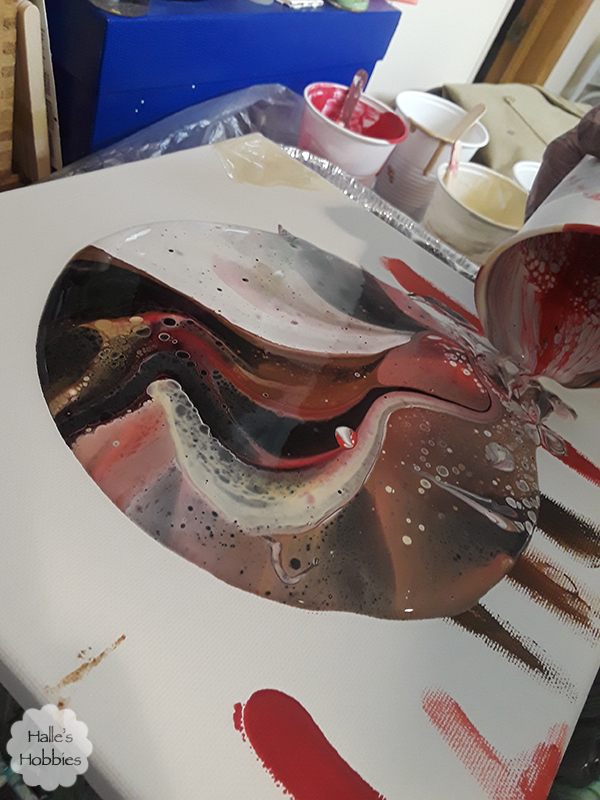
Already cells are forming from the paint bubbling up and popping. No silicone used or needed.
I sometimes lightly blow on the paint to pop the surface bubbles before tilting the canvas to begin the flow.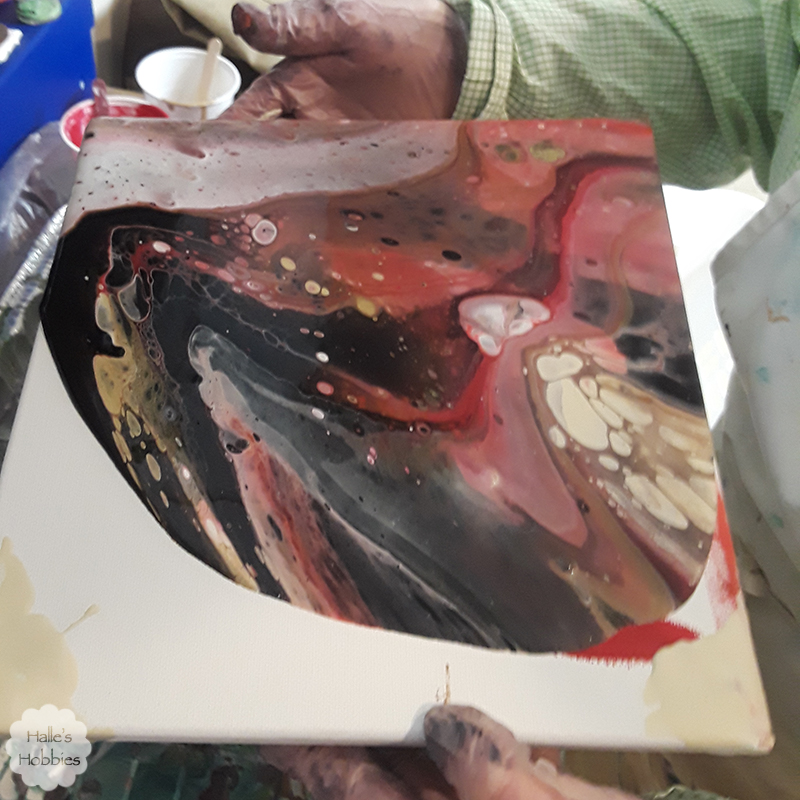
Here is the completely dry canvas. I did drizzle some paint left in the cup at the bottom of the canvas to add interest. Not sure if I entirely like that addition but its all a grand experiment.
Here is the second one I did with the same colors.
Crazy how different they are from each other. I love this this one…so does Mini-me. The colors work as a perfect accent in her room which was why I used them in the first place.
Special thanks to Mini-me for her photography during the process.
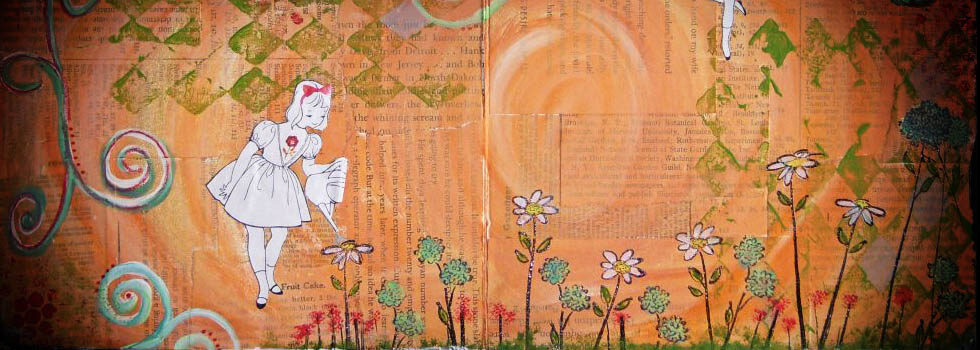
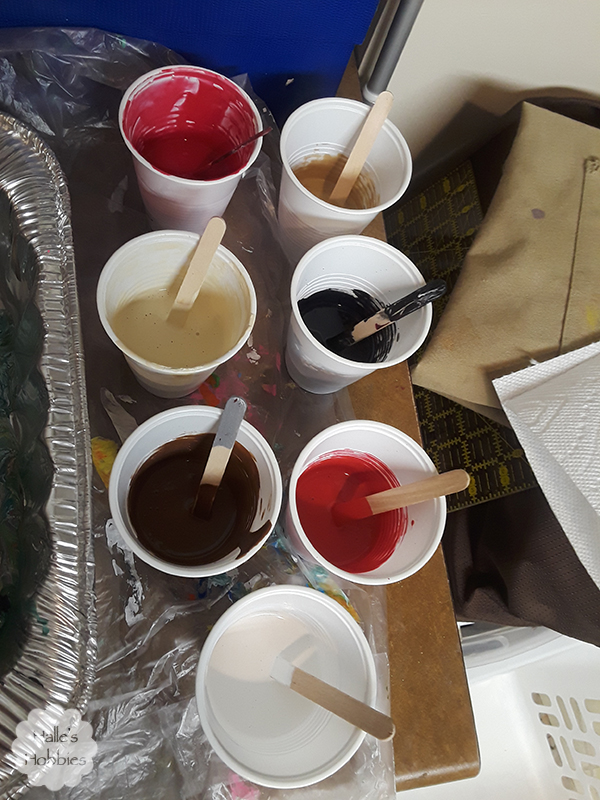
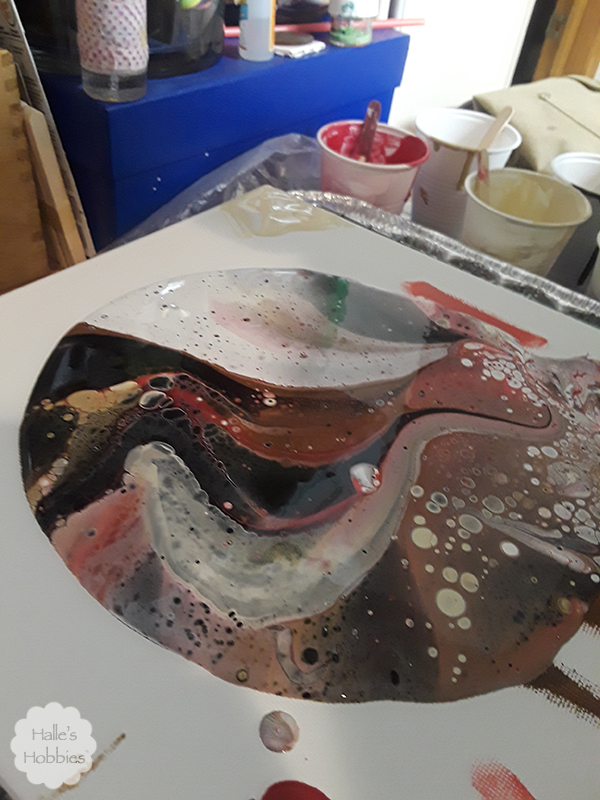
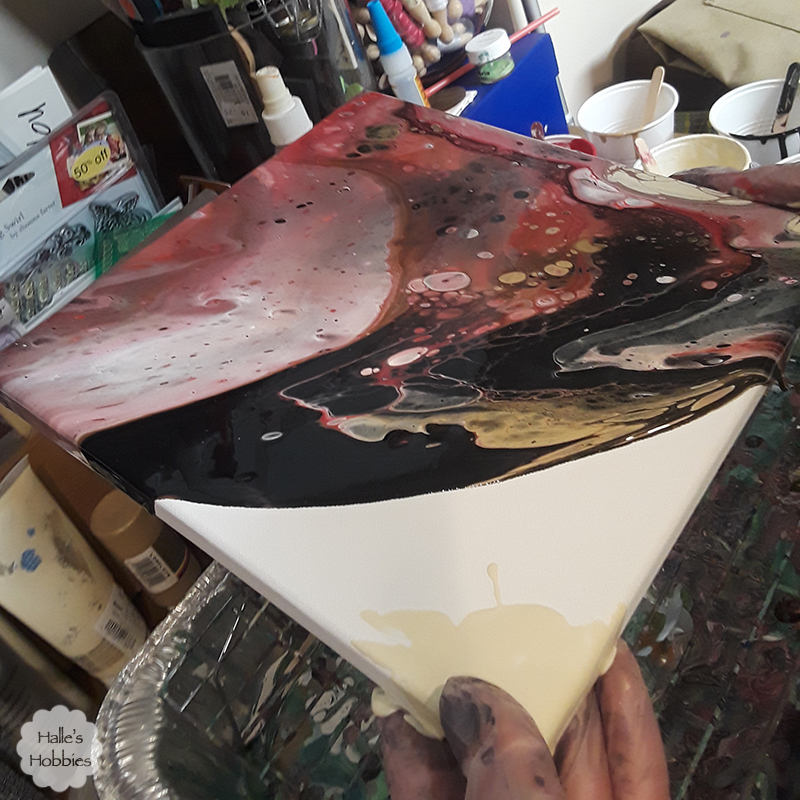
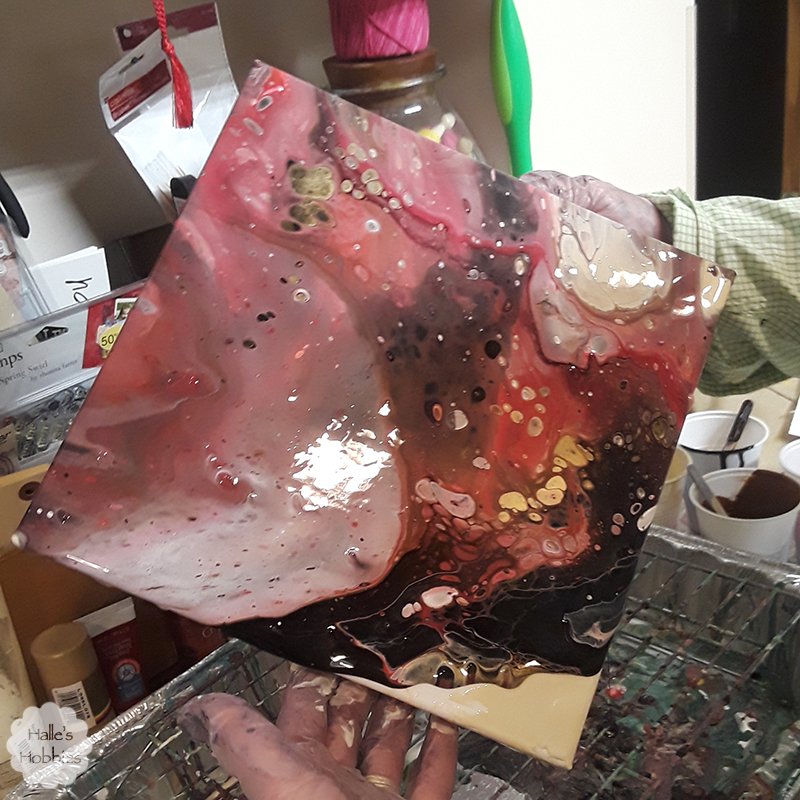
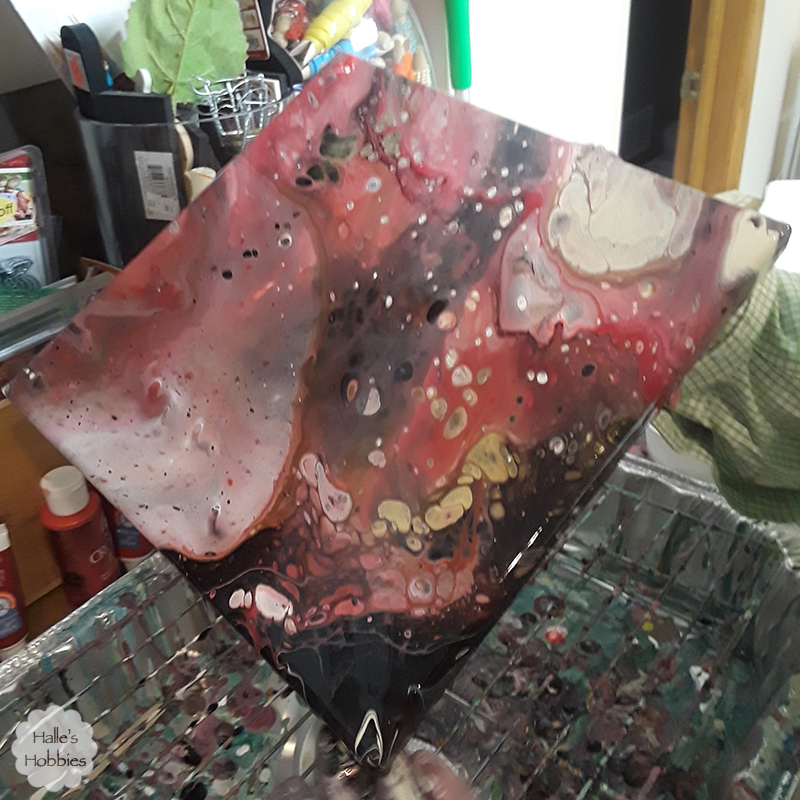
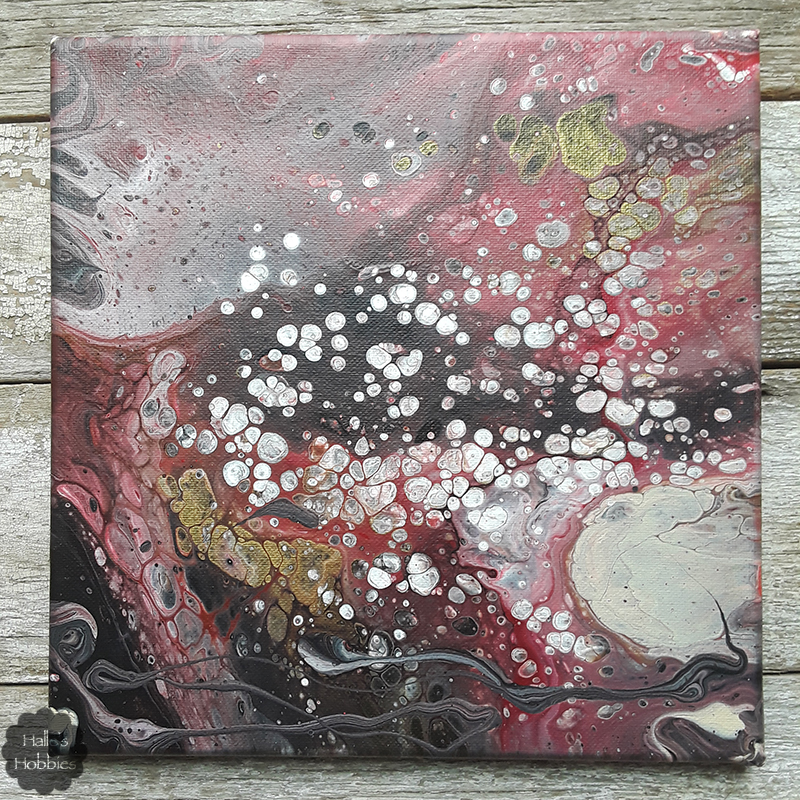
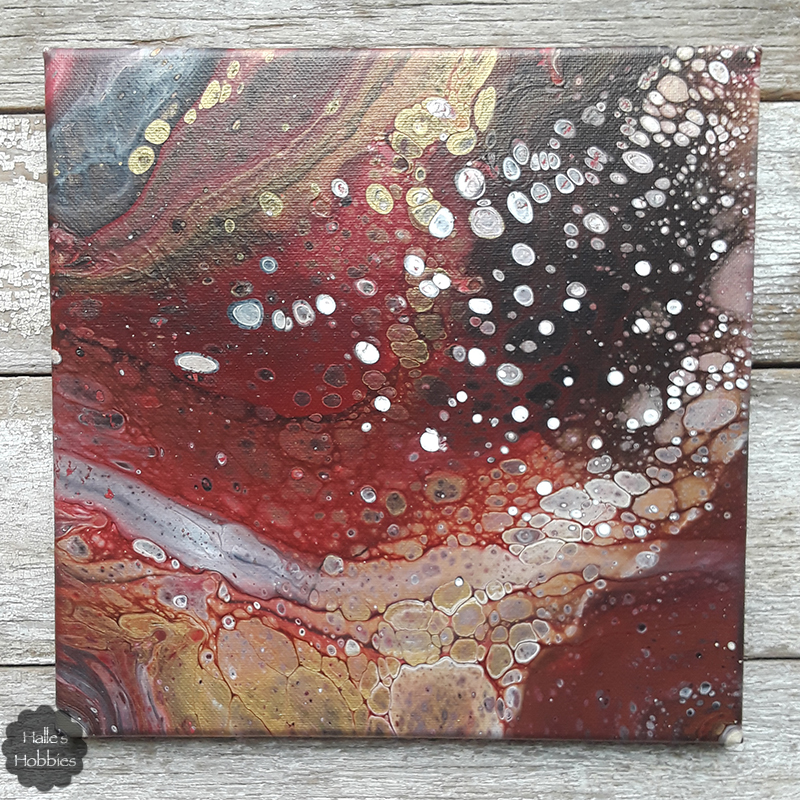
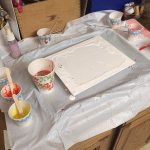


Thank you for explaining this process. Do I absolutely need the flotrol? I would try this if I didn’t have to go out and buy anything else. It would be a great recycle project, I think, since I have SO much paint.
Thanks again for such a detailed example of the work you do to make these beautiful pieces. And thanks to Mini Me for the great photos, too. She’s got a good handle on photography.
Thanks for sharing your process. I didn’t know about floetrol and it’s good to know about that. I will say your pour pieces are amazing. I’m going to bookmark this post so I can give it a try. Hugs-Erika
Fascinating process and beautiful results, Halle. I’m delighted to know about Floetrol. I can think of many uses for that. Thank you for documenting and explaining all this and thanks to Mini-Me for the photos.
P.S. I hope you signed and dated her canvas for her.
Fascinating! I wonder if that product you used is available in Europe…. Thank you so much (and mini-me too) for documenting this. Lisca